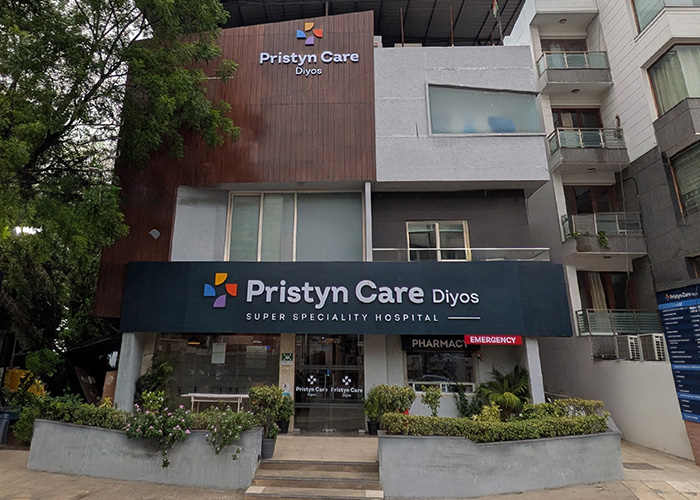
Delhi
USFDA Approved Procedures
Minimally invasive. Minimal pain*.
Insurance Paperwork Support
1 Day Procedure
FUE (Follicular Unit Extraction) is a hair transplantation method where individual hair follicles are harvested straight from the donor area, generally the back or sides of the scalp. This is done using a specialized punch tool that makes tiny, circular incisions around each follicular unit. These individual follicles are then carefully implanted into the recipient area, where hair is thinning or balding. This FUE technique of hair transplant is known for its minimally invasive nature and absence of a linear scar, making it a popular and suitable choice for those seeking natural-looking hair restoration.
In FUE hair transplant, the hair transplant specialist extracts follicular units one at a time, maintaining the natural orientation and arrangement of the hair. This method of transplant allows for a more dispersed and natural-looking outcome compared to other methods. FUE is associated with quicker recovery times and less postoperative discomfort. However, it's crucial to note that the success of the procedure depends on varied factors, including the surgeon's expertise, the quality of the donor hair, and the patient's overall suitability for the procedure.

FUE hair surgery is suitable for those who:
FUE hair transplant offers several benefits , including:

FUE Hair Transplant Diagnosis And Procedure in Delhi
Various diagnostic tests may be conducted by your hair transplant surgeon in Delhi before an FUE hair transplant to evaluate your candidacy and ensure a successful procedure. These tests may include:
The follicular unit extraction procedure involves the following steps:
It’s essential to choose a qualified and experienced surgeon in Delhi for FUE procedures and follow post-operative care guidelines for the best results.


 NABH
NABH
Pristyn Care Diyos Super-Speciality Hospital is committed to redefining modern healthcare by blending cutting-edge technology with compassionate, patient-first care. Located in the heart of Safdarjung Enclave, South Delhi, our NABH-accredited facility offers advanced treatment solutions across multiple specialties, ensuring superior outcomes and faster recoveries.
Our dedicated team of doctors at Pristyn Care Diyos Hospital aims to streamline the entire patient journey—from consultation to recovery—by providing seamless, end-to-end medical care tailored to each individual’s needs.
We offer specialised medical services across a wide range of fields, including urology and andrology, general and laparoscopic surgery, cosmetic and plastic surgery, gynaecology and urogynaecology, orthopaedics, neuro and spine surgery, ENT (ear, nose, and throat), oncology, internal medicine, and critical care. Our facility also extends home care services for enhanced convenience and continuity of care.
The suites and patient rooms at the Hospital are thoughtfully designed to ensure a comfortable and healing environment, featuring modern amenities, hygienic surroundings, and attentive support for both patients and their attendants.
Supported by a skilled clinical team and world-class infrastructure—including modular operation theatres with HEPA filters, advanced diagnostic labs, and high-end medical equipment— Pristyn Care Diyos Hospital stands as a trusted destination for safe, effective, and personalised healthcare.
...Read More
Delivering Seamless Surgical Experience in India
Your safety is taken care of by thermal screening, social distancing, sanitized clinics and hospital rooms, sterilized surgical equipment and mandatory PPE kits during surgery.
A dedicated Care Coordinator assists you throughout the surgery journey from insurance paperwork, to free commute from home to hospital & back and admission-discharge process at the hospital.
Our surgeons spend a lot of time with you to diagnose your condition. You are assisted in all pre-surgery medical diagnostics. We offer advanced laser and laparoscopic surgical treatment. Our procedures are USFDA approved.
We offer free follow-up consultations and instructions including dietary tips as well as exercises to every patient to ensure they have a smooth recovery to their daily routines.
The primary distinction between FUT and FUE lies in the technique of hair follicle extraction. FUT involves removing a strip of skin removal with subsequent follicle extraction, while FUE involves removing individual follicular hair units directly.
While FUE is suitable for many, a consultation with a skilled surgeon is required to determine candidacy based on factors like hair type, donor area quality, and overall health.
FUE hair implant is generally considered a safe and effective procedure. However, there are potential risks that can occur after the procedure, some of which include infection at the donor or recipient site, bleeding, scarring, shock loss, unnatural appearance, etc. It’s important to choose a qualified and reputable surgeon, follow postoperative care guidelines, and have realistic expectations regarding the outcomes. Before undergoing any medical procedure, it’s suggested to consult with a healthcare professional who specializes in hair restoration to discuss your individual case.
Redness after an FUE hair transplant can vary from individual to individual. Generally, it may last for a few days to a couple of weeks. Factors like individual healing processes, skin sensitivity, and aftercare practices can impact the duration of redness. If you’re concerned about prolonged redness, it’s advisable to consult with your transplant surgeon for personalized advice based on your specific situation.
It’s typically recommended to wait a few weeks after a hair transplant before cutting your hair. This allows time for the transplanted hair grafts to establish themselves. However, following your hair transplant specialist’s specific post-op guidelines is important, as individual cases may vary.
During an FUE hair transplant treatment, local anesthesia is utilized to numb the donor and recipient regions, which helps minimize pain during the procedure. While pain and discomfort are subjective and vary among individuals, many report mild to moderate discomfort during and after the procedure. Your hair transplant surgeon will provide postoperative care instructions and may prescribe pain medication if required. Overall, FUE hair transplant is considered a relatively low-pain procedure compared to older hair transplant techniques.
Recovery time after an FUE varies, but most individuals can resume regular activities within a few days. However, complete healing and growth of transplanted hair may take several months.
Shock loss, a temporary shedding of existing hair, can occur after FUE but is usually temporary. It’s part of the natural hair growth cycle and new hairs will ultimately grow in its place.
When performed by a skilled and experienced surgeon, a FUE hair transplant can produce natural-looking results. However, the success of the procedure often depends on various factors like graft placement, design of the hairline, quality of the grafts extracted and transplanted, donor site management, etc.
The cost of a sapphire FUE hair transplant can range from Rs. 65,000 to Rs. 95,000 in Delhi. However, the price can vary widely depending on the city, clinic reputation, and individual factors.
Here are some general guidelines to follow after a FUE hair surgery:
Always follow the specific post-operative instructions provided by your hair transplant surgeon in Delhi, as these guidelines can vary based on individual cases. If you experience any unusual symptoms, such as excessive bleeding, intense pain, or signs of infection, contact your surgeon promptly.
The FUE hair transplant cost in Delhi can range from Rs. 50,000 to Rs. 80,000. However, several factors can influence the FUE hair transplant cost in Delhi:
It’s important to research and consult with multiple clinics in Delhi, considering not just the FUE surgery cost but also the reputation, expertise, and overall value of the services provided.
While FUE hair transplant is typically considered safe and effective, like any medical procedure, it carries certain risks and potential complications. Some of these include:
It’s essential to note that many of these risks are uncommon, and complications can often be minimized by selecting a qualified and experienced surgeon in Delhi and following postoperative care instructions diligently. Always consult with a medical professional to discuss individual risks and considerations based on your health and specific circumstances.